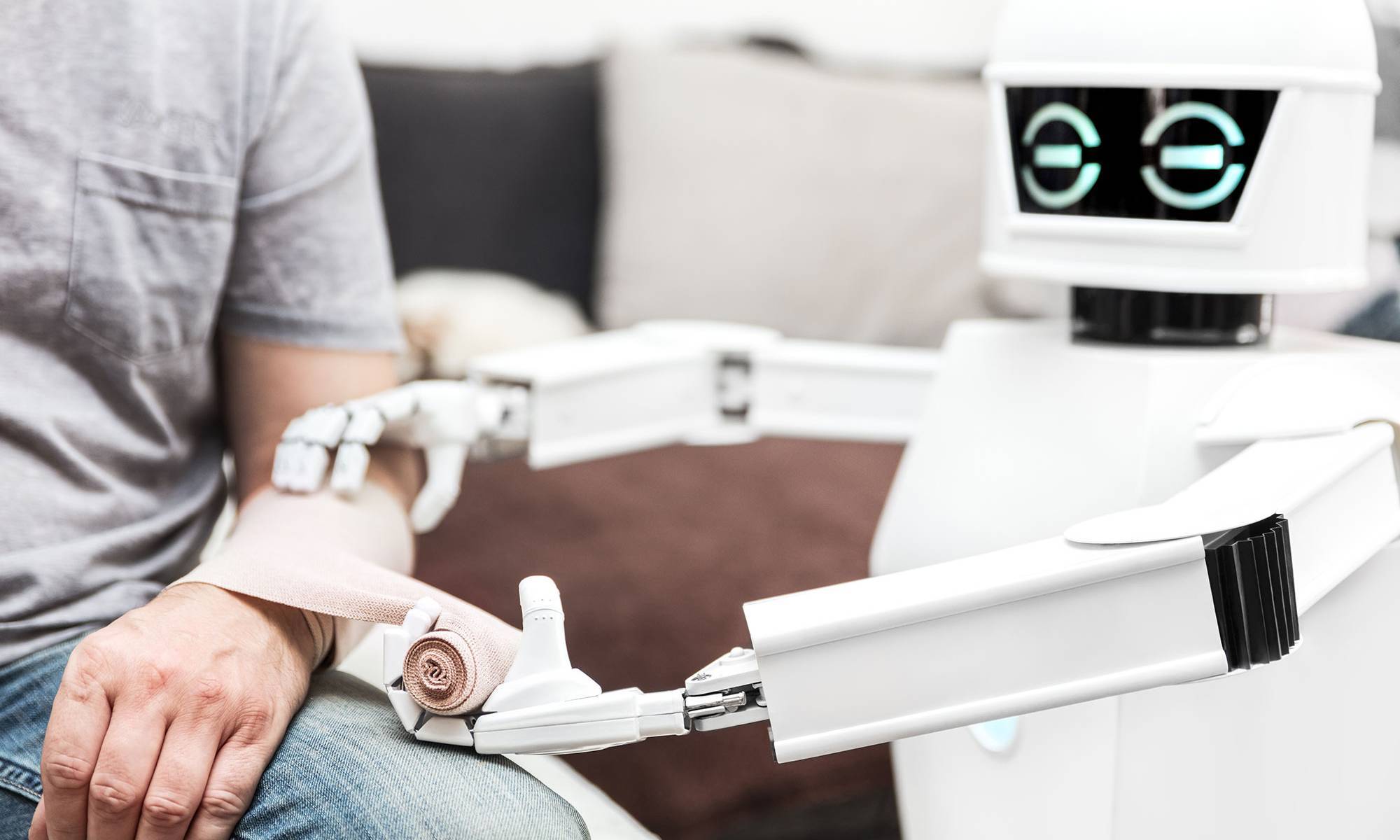How AI can succeed in assisting medicine
Artificial intelligence, machine learning, and neural networks; we encounter these and other concepts on a daily basis. But what exactly lies behind the hype, what benefits and risks come with these technologies, and how are they already being used in medicine today?

It all began 50 years ago
While the use of artificial intelligence (AI) in healthcare is often still met with skepticism, its origins date back to the 1970s. Back then, physician, computer scientist, and AI pioneer Edward H. Shortliffe developed the expert system MYCIN at Stanford University, bringing initial success in the field of diagnosis and therapy of infectious diseases. Today, AI-based systems are used in many other areas, especially where health information is already available digitally and in large quantities. If implemented effectively, such systems can detect deviations, abnormalities, or commonalities much faster and more reliably than humans. These systems can put values in relation to each other and recognize trends, monitor the condition of patients, and forecast therapy outcomes.
In practice, this progress is exemplified in the detection of lung cancer or strokes on the basis of CT images. Today, very high diagnostic accuracies can already be achieved with a low error rate. However, the best results are still achieved by teams of doctors or human-machine collaborations, as a recent study published in the Nature journal shows.
The real question we have to ask ourselves is: How can AI-supported systems be used in a way that everyone involved can benefit from them? After all, technology does not make humans redundant but can effectively support and relieve them. Particularly in the area of medicine, AI has enormous potential to improve the delivery of good healthcare fundamentally.
Second opinion from AI
A survey of 1005 patients conducted by the digital association Bitkom shows that 31% would regularly seek a second opinion from an AI in the future. Younger people are particularly open-minded. In total, 39% of respondents believe that doctors should have their diagnosis double-checked by an AI. They see AI-supported systems as good support for medical professionals because by delegating simple tasks, doctors would be able to spend valuable time with their patients again. Nevertheless, 93% of those surveyed would still like to receive a diagnosis from a real human being. So ultimately, it’s about a symbiotic relationship between doctors and machines.
For this symbiosis to be successful, the benefits and risks must be communicated clearly. Applying AI in every area of healthcare may not be feasible today. However, 86% of clinical physicians already see digitalization as an opportunity for the healthcare system, as another survey by the digital association Bitkom shows. Another 67% believe that healthcare institutions could reduce their expenses through digital technologies, and more than one in three even assume that this will also increase people’s life expectancy.

Relationship between doctor and patient shifts
In any case, it is clear that digitization will also permanently shift the relationship between doctor and patient. In the age of the internet, health information is readily available anywhere and anytime. Today, one out of two already consult Dr. Google before visiting a doctor. A large proportion of the doctors asked view this with a certain degree of skepticism, but at the same time, the majority state that they have already gained valuable insights by engaging with patients who have informed themselves digitally before their appointment. It has also been proven that informed patients have a better chance of adhering to treatment, which can have a positive influence on treatment and the healing process.
This can be a great benefit, especially for people with chronic diseases such as diabetes or in the prevention of cardiovascular diseases. The use of AI-supported systems also helps physicians to better allocate limited resources, for example, by relieving them of administrative tasks. This leaves more time for the essentials – namely, the patients.
How is AI used at XUND?
With our technology, we want to empower people to make informed decisions about their personal health. Therefore, we are applying AI where it matters most to us at present: in building and optimizing our medical knowledge base and decision-making algorithms, which we call Medical Engine. This allows us to automatically analyze millions of medical publications & case studies and process more than 4000 diseases automatically. Such a large amount of data would take a single doctor more than 470 years to analyze. Our team of doctors then enriches this information once more with experience gained from many years of medical practice. This interaction between humans and artificial intelligence enables us to meet the very highest quality standards required of a medical device.
The technology behind XUND is also designed to be both modular and versatile. This benefits not only patients but also healthcare providers such as insurance companies, hospitals, or pharmacies. After all, we also provide our Medical Engine to other healthcare providers through an API solution. This enables them to better understand their data and apply our diagnostic decision-making algorithms based on it. As a result, these institutions can provide trustworthy and reliable medical information in their own ecosystem anytime and anywhere.
Being the digital interface between the user and the healthcare system, XUND can help save time and money and improve the quality of life for all involved.